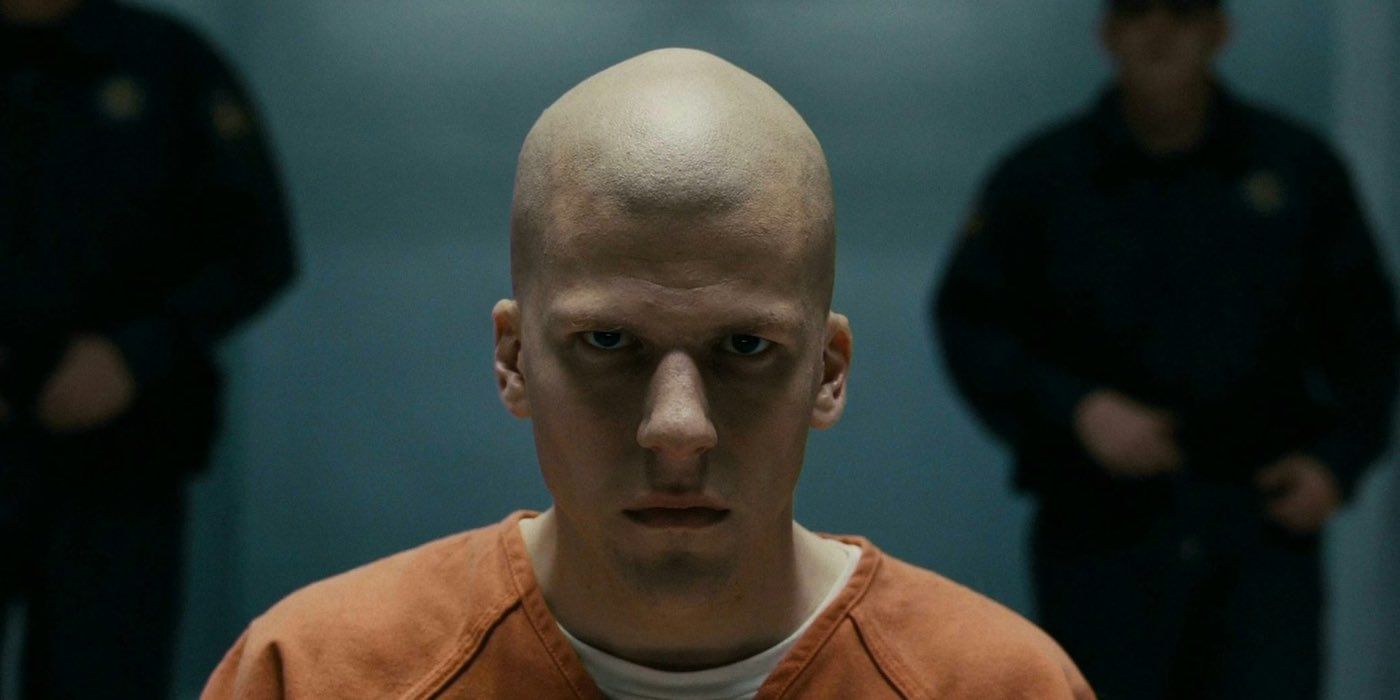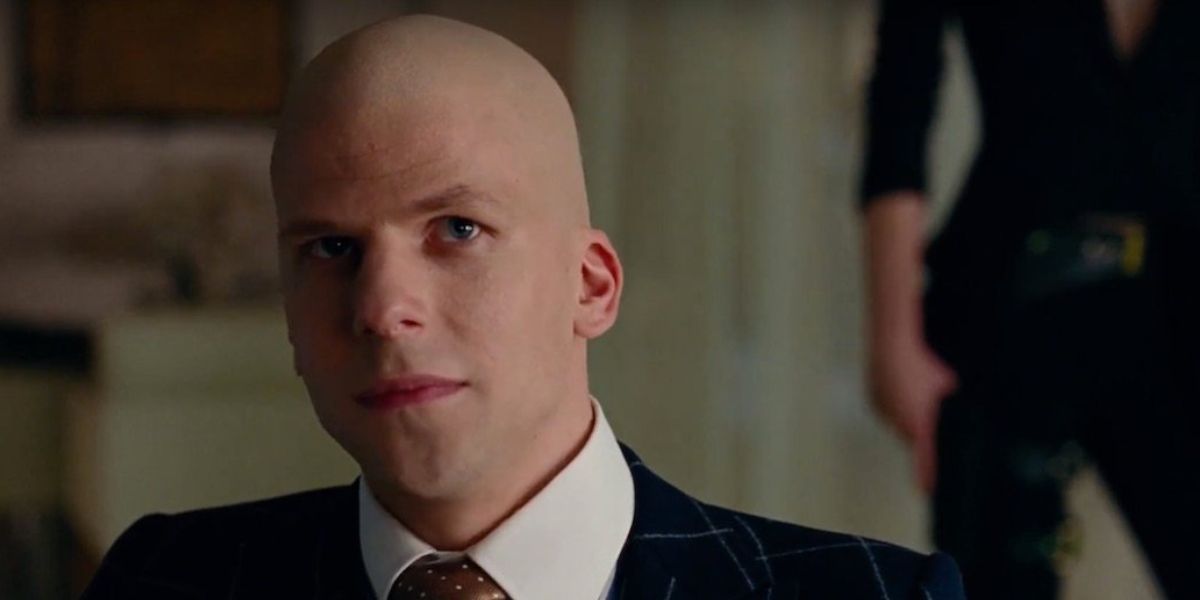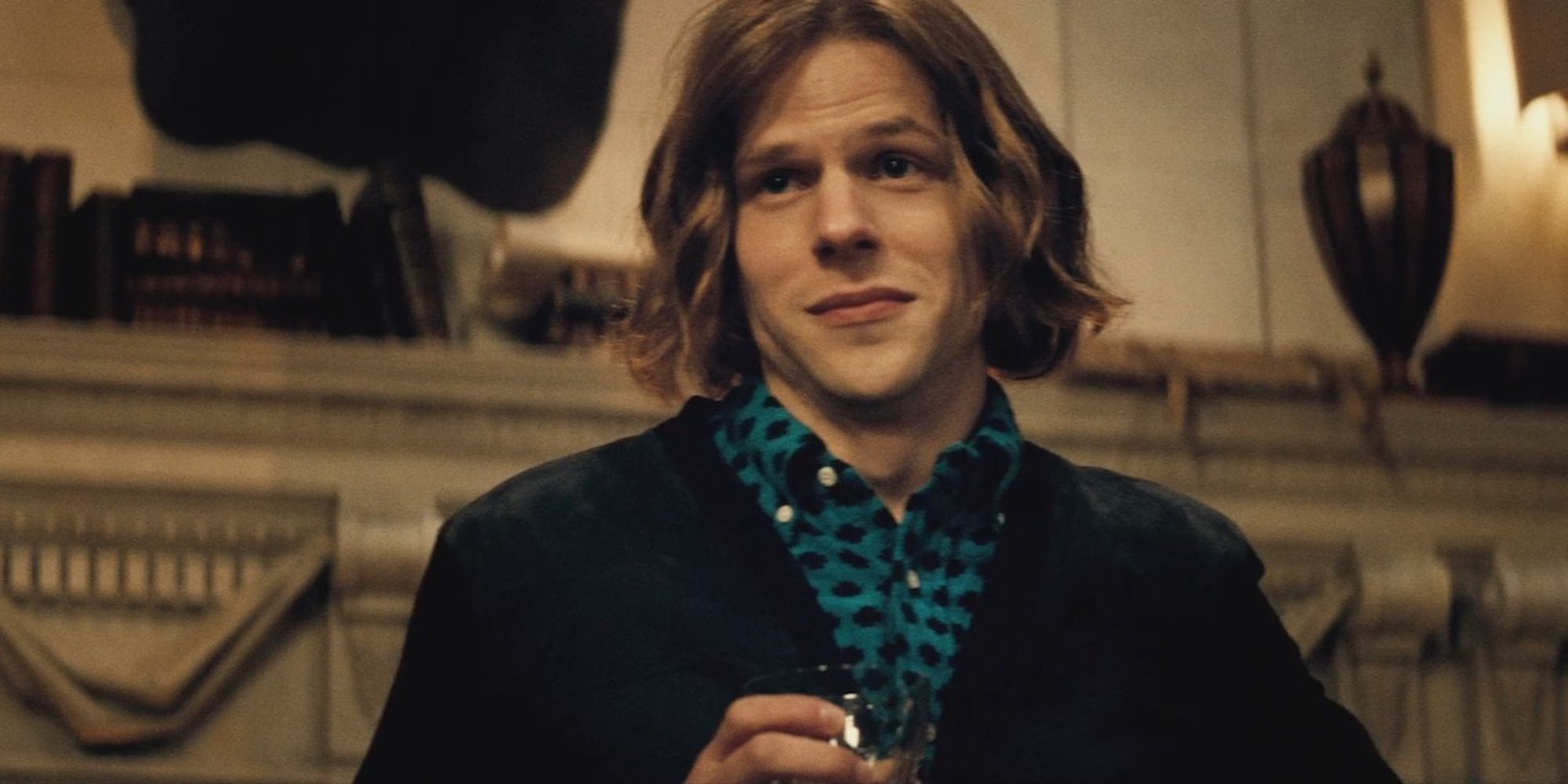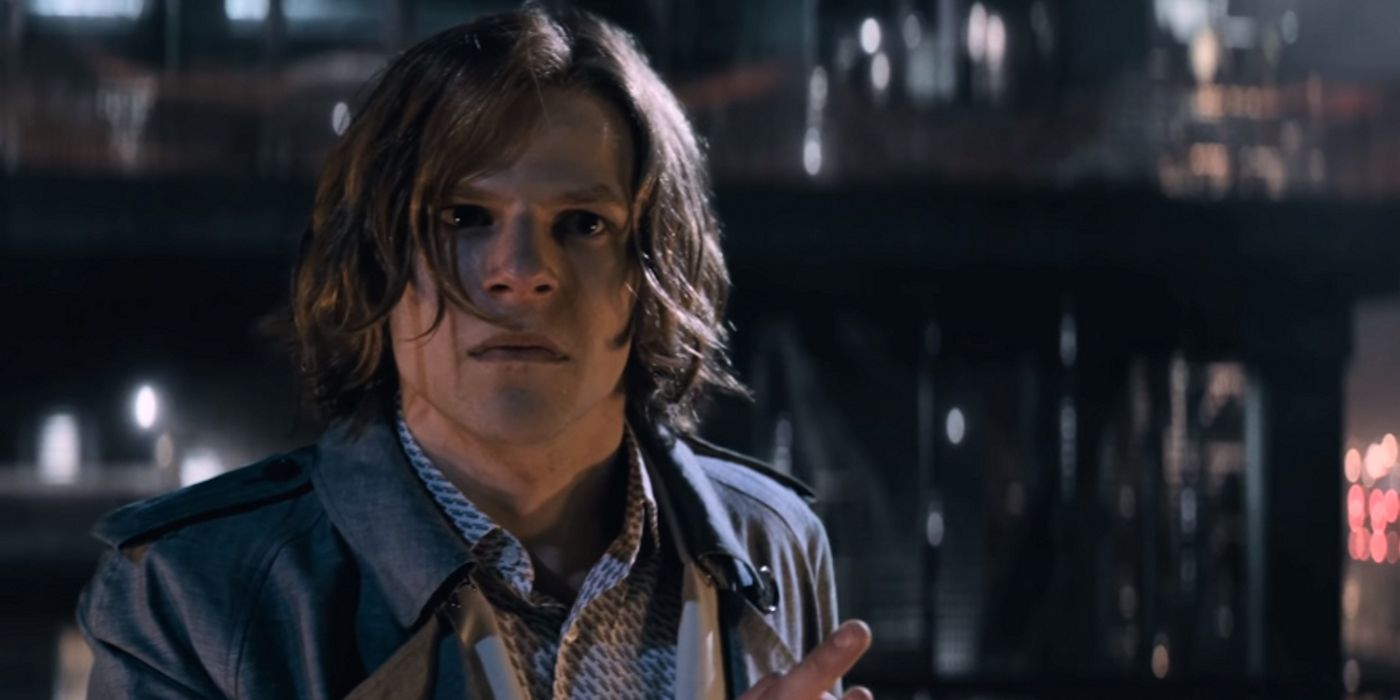Batman v Superman: Dawn of Justice is one of the most controversial films of the last decade. Like most of director Zack Snyder's films, the DC Comics adaptation has its share of loyal, passionate supporters. But upon its 2016 release, the film was met with mixed to negative reviews, and many viewers have continued to criticize it since. The film also did not achieve the kind of gargantuan financial success expected of a blockbuster featuring the first live-action meeting between comics’ two most famous superheroes. Virtually every major aspect of the film has been criticized by one detractor or another, with frequent targets being the film’s tone and characterization of its leads. The portrayal of villain Lex Luthor (Jesse Eisenberg) received particularly harsh criticism, directed at both Eisenberg’s performance and the writing and aesthetic choices associated with the character. But if one takes another careful look at what the film is doing with Eisenberg’s Lex, one may be surprised by how effective a villain he is and how much he has in common with other, more popular versions of the character.
Batman v Superman begins almost two years after the events of Man of Steel, Snyder’s first DC movie. Although Clark Kent/Superman (Henry Cavill) is regarded as a beloved hero by many, an equally large group are frightened by his immense power and alien origins in the wake of the massive destruction caused by his battle with General Zod (Michael Shannon) and his band of evil Kryptonians. Lex is obsessed with discrediting and destroying Superman and plans to exacerbate the public’s fears, as well as those of Bruce Wayne/Batman (Ben Affleck), in order to do so, manipulating events so that Superman and the Dark Knight go to war with one another.
Master Manipulator
Lex’s plan comes dangerously close to success, and he is several steps ahead of the heroes for much of the film. Batman only stops himself from killing Superman when he learns their mothers share a name in the film’s most infamous moment. Although disappointed he was unable to fully corrupt either hero, Lex has a backup plan so that he can still physically destroy Superman. It takes help from Wonder Woman (Gal Gadot) and Superman sacrificing his own life to stop the Doomsday monster Lex unleashes by mutating Zod’s body. This has the unintended effect of restoring and even increasing public support for Superman, furthering Lex’s ideological defeat, but he has yet another contingency in place, having already made contact with the evil gods of Apokolips, setting up the Justice League film.
Whatever else one might think of him, it’s hard to deny that Eisenberg’s Lex is a frighteningly proficient antagonist and the film’s tone, visuals, and score contribute greatly to making him a dread-inducing presence. The extent of his manipulative prowess can best be seen in the “Ultimate Edition” of the film, which is around a half-hour longer than the theatrical release. This version shows events that appear coincidental in the theatrical edition are actually a part of Lex’s design, making him seem even more omniscient and dangerous. While it’s understandable why the studio was unwilling to release the three-hour version of the film to theaters, viewers who are hoping to get the fullest possible experience and are looking to give Eisenberg’s Lex a fair shake really should watch this extended cut.
Lex vs. God
Lex’s motivations in the film are both multi-faceted and accurate to some of the most popular iterations of the character in the comics. A big part of the reason he hates Superman is that he views him as a stand-in for God, who Lex resents because he did not save him from his father’s abuse. After capturing Clark’s mother, Martha (Diane Lane), Lex reveals this motivation in a rant, saying, “No man in the sky intervened when I was a boy to rescue me from Daddy’s fists and abominations.” This led to his belief that neither God nor Superman can be both all-powerful and entirely good, which is what he hopes to prove by either corrupting or killing Clark.
Lex’s obsessive hatred of Superman is, of course, a defining aspect of the character across media, and since the 1980s, child abuse has occasionally been referenced as an addition to the character’s comic book backstory. The religious opinions of the character are characteristic of Snyder’s time with the franchise, in which the generally godly nature of superheroes and Superman’s specific similarities to Jesus Christ were heavily emphasized. Batman v Superman and Justice League provide a symbolic depiction of the story of Easter, with Clark being vilified, killed, and resurrected, just as Jesus was. Lex plays a crucial role in this story, manipulating Batman and others into denouncing Superman as Jesus was denounced, and it is Lex’s creation, Doomsday, that stabs and kills Superman in the film’s finale, in a sequence with visual connections to the Crucifixion.
Lex is also motivated by his belief that Superman’s presence devalues human achievement and knowledge. In a scene set at Lex’s charity event for the Metropolis library, he gives an awkward speech that highlights both his social difficulties and his motivation, stating “the bittersweet pain among men is having knowledge with no power… because… because that is paradoxical…” This suggests that Lex also resents Superman because his power does not stem from knowledge, as Lex believes all power should. This is quite similar to his motivation in popular comics, including the belief outlined in Brian Azzarello and Lee Bermejo’s Lex Luthor: Man of Steel, an acclaimed miniseries in which Lex tells Superman that when he looks at him, he sees, “Something no man can ever be. I see the end. The end of our potential. The end of our achievements. The end of our dreams. You are my nightmare.”
Eisenberg's Lex vs. Others
Lastly, there is the issue of Eisenberg’s actual performance and the specific personality of his Lex. Eisenberg’s work was criticized for being jittery and hyperverbal, with some arguing that his performance would be more fitting if he was playing other DC characters like the Riddler or the Joker. But while it’s true that his Lex isn’t consistently imposing like Clancy Brown’s version of the character from the DC Animated Universe or Michael Rosenbaum’s from Smallville, this actually makes the moments when Eisenberg’s version asserts his power over the heroes even more unnerving. Eisenberg's casting and scenes set at LexCorp associate his Lex with Mark Zuckerberg (who Eisenberg famously played in The Social Network) and other real-world billionaires who many believe may pose threats to society despite their unassuming natures and helped the film tap into the current cultural zeitgeist.
Furthermore, the wordplay and other darkly comedic aspects of the character are in line with portrayals from comics and other media. There’s an inherent level of silliness to many versions of Lex, which is often rooted in either how absurdly smart he is portrayed as and or how all-consuming and petty his obsession with Superman is. These qualities can be seen in many popular versions of Lex such as Jon Cryer’s from the Arrowverse, and even Gene Hackman’s from the Christopher Reeve Superman films, with the latter being arguably the most popular live-action iteration of the character. Both of these versions engaged in full-on slapstick comedy, while still coming across as dangerous, convincing threats. The criticisms of the more subtle comedic aspects of Eisenberg’s portrayal come across as somewhat hypocritical, given the more generous assessments viewers gave to Hackman and Cryer.
Like most of Batman v Superman, Eisenberg’s Lex isn’t perfect, but he works well for the story Snyder and company tried to tell. Viewers who give the film a re-watch with open minds might be surprised by how compelling a villain he really is.




